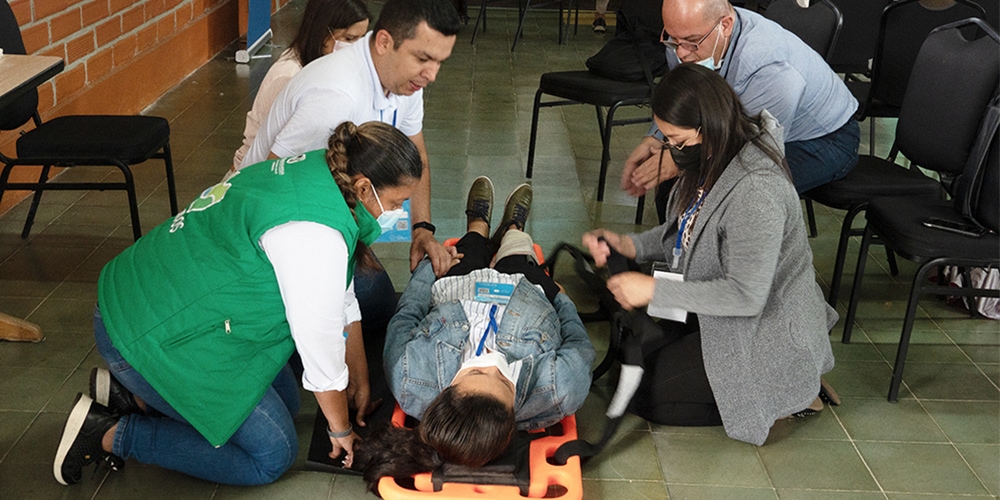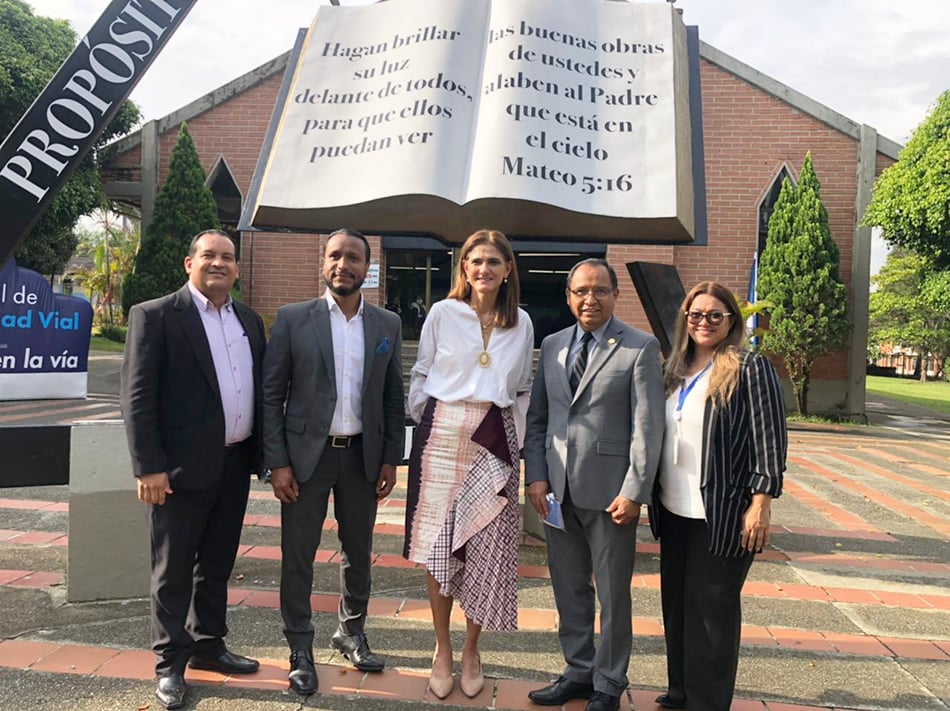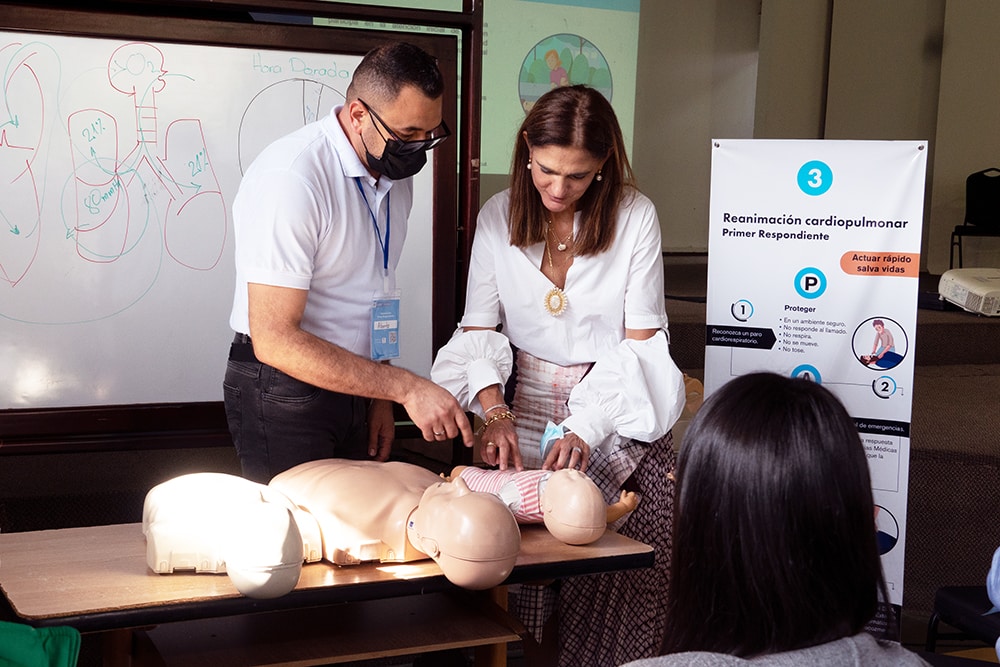
Colombia Adventist University (UNAC) in Medellin recently launched the first of many first-responder training programs that will seek to equip 9,000 citizens across dozens of cities and municipal districts to provide first-aid to traffic accident victims in Colombia.
The program, which is supported by the national government, will see the first responder program taught by the Adventist university for a 10-year period, university leaders said.
Colombia’s minister of transportation, Ángela María Orozco, visited the university campus on April 26, 2022, to highlight the importance of the national campaign in order to prevent deaths in accidents and increase victims’ chances of survival. Orozco took part in the eight-hour training session on campus with 65 other individuals enlisted in the program, representing different sectors.
According to Colombia’s National Safety Observatory, 7,270 deaths were due to traffic accidents in 2021. That represents the largest number in the past three years, surpassing 2020, with 5,458 deaths, and 6,633 in 2019.


“UNAC has been accompanying us in developing this training at a national level so they can equip first responders when an accident happens,” Orozco said. “Congratulations to this campus for this collaboration in the process of training throughout the country.”
Thanks to the university’s more than 20 years of experience in training students in prehospital care, it won the bid over other universities nationwide, university officials said.
“UNAC won this process to train more than 9,000 Colombians so that we can continue saving lives on the road, thanks also to the fact that they are accredited in prehospital care assistance, which is fundamental,” Luis Lota, director of the National Road Safety Agency, said. “No doubt, with more knowledge, we can save more lives on the roads in Colombia, which is very important work for our national agency.”
Training will continue at in-person and virtual sessions with a team of experts on tending to patients with multiple traumas, immobilization techniques, patient movement techniques, adult and pediatric basic cardiopulmonary resuscitation, use of automated external defibrillator, and management of airway obstruction, convulsions, and shock. In addition, training sessions will include how to care for soft tissue injuries, wounds and bruises, and initial management of fractures, burns, and eye injuries, among others.
Officials from transport companies, northeast highway concessionaires, other universities, mobility secretaries of nearby municipalities, and other organizations from different sectors participated in the initial training event.
For UNAC president Juan Choque, the visit of the minister of transportation, as well as the opportunity for the institution to take part in a national program, will elevate the profile of the Adventist institution in Colombia. “This opportunity will also strengthen the prehospital care program as well as bring about opportunities to take part in additional projects to assist the community and offer a more wholistic service,” Choque said.
The original version of this story was posted on the Inter-American Division news site.